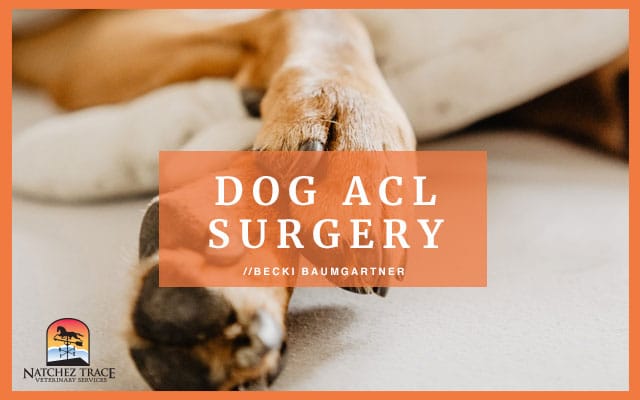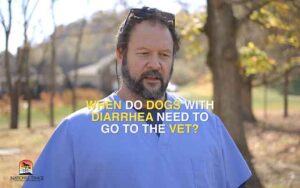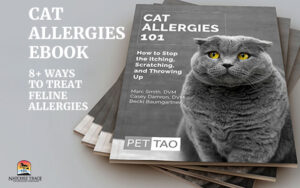What is Dog ACL Surgery?
Dog ACL surgery or otherwise known as canine cruciate surgery is a very stressful and expensive endeavor for dog owners.
Veterinarians use ACL surgery to repair a torn cranial cruciate ligament in your dog’s knee.
Nobody likes to see a beloved family member in pain! And, of course, you have questions.
The list of questions going through your mind may be infinite:
- Is dog ACL surgery really necessary?
- How much does it cost?
- What is the success rate?
- Are other options available aside from ACL surgery?
- Which surgery should I choose?
We’ve compiled some information to help you better understand the options available.
And ultimately, help you to make the best choice for your dog.
1. Prolotherapy May Be a Non-Surgical Option for Large Breed Dogs
There is some good news: Maybe you can bypass surgery at this time!
Yes, sometimes you can skip surgery and opt for prolotherapy instead.
Prolotherapy is also called:
- proliferation therapy
- regenerative injection therapy.
A veterinarian injects an irritant solution into the injured tendon or ligaments during prolotherapy.
The prolotherapy injections stimulate the healing of the ligament tear and relieve pain.
Prolotherapy is excellent if your dog’s cruciate ligament is partially torn.
However, your dog will need surgery if the ligament is completely torn.
2. You Can Choose “Bone Cutting” Surgery or the “Fishing Line” Technique
Believe it or not, you have options. There is more than one type of surgery for cruciate injuries.
If your dog suffers from a torn cruciate ligament, you know your dog is in pain.
Most likely, a trip to your vet results in a recommendation for surgery.
Often, family veterinarians do not perform bone-cutting surgeries.
Therefore, your vet may refer you to a specialist.
And most specialists recommend a “bone-cutting” type of surgery to repair a torn ACL.
Statistics show bone-cutting surgeries:
- Slightly outperform (3-5%) the fishing-line technique in long-term function
- Have shortened recovery times and faster resolution of post-surgical pain.
Unfortunately, bone-cutting surgeries cost an average of 50% more than the fishing-line technique.
Furthermore, if something goes wrong during surgery or the recovery period, the complications could include the loss of your dog’s leg.
For this reason, and in most situations, we offer the “fishing-line” technique as an option to our clients
.
3. Tibial Tuberosity Advancement (TTA) Surgery May Be A Better Choice Than Standard Cruciate Surgery
Tibial Tuberosity Advancement (TTA) is the newest, most innovative canine knee surgery.
TTA is a surgical procedure treating cruciate ligament ruptures in dogs’ knee joints.
It involves cutting the top of the shin bone and moving it forward to stabilize it in a new position.
TTA surgery may be a better option than regular ACL surgery for high-energy dogs weighing over 50 lbs.
4. Post-Surgery Rehabilitation is Mandatory after Dog ACL Surgery
No matter the type of surgery, your dog will need post-surgery rehabilitation.
It’s not an option but a necessity for a successful surgery.
Post-surgery rehabilitation ensures:
- proper healing
- the maximum range of motion
- flexibility.
In fact, good post-surgical rehabilitation can even be the difference in whether or not dog ACL surgery is successful!
5. Prevent Your Dog from Tearing the Good Knee Ligament After Surgery
Studies show 50% of dogs who tear one cruciate ligament will tear the ligament on the opposite side sometime in the future.
The reported statistic is 50%, but in real life, the percentage is probably closer to 70%.
The reason for the probability of injury on the opposite side is because often, after surgery, the “good” knee becomes overused.
As a result, overuse or excessive weight-bearing initiates the tearing of the cruciate ligament in the “good” knee.
There are several ways to prevent a second injury to your dog’s knee.
6. Dogs are Individuals and Have Individual Needs, Just Like People!
Last but not least, please don’t forget your dog is an individual!
Your dog’s health status is unique, and your dog has individual needs just like you!
At Natchez Trace Veterinary Services, we know dogs are individuals.
We treat each dog individually, and no two treatment plans are the same.
Contact us today to learn more about dog ACL surgery costs and success stories!
Powerful Tools to Help Your Dog’s ACL Challenges
You can make many quick and easy changes at home to help you give your dog an edge on easing tendon and ligament challenges.
- Learn more about torn ligaments and cruciate disease.
- Provide joint support. PET | TAO Harmonize Joint is a blend of Eastern herbs and Western supplements working together to lubricate and restore your dog’s joints.
- Ease your dog’s discomfort naturally. PET | TAO Comfort is a blend of Eastern herbs and Western supplements to soothe your dog’s arthritic challenges to make him/her more comfortable.
- Try PET | TAO Freeze Dried Beef Liver Treats. According to TCVM, the liver controls tendons and ligaments. As few as 5-6 treats per day can make a huge difference in your dog’s tendon and ligament health!
- Try a Blood-building TCVM Diet. PET | TAO Solution Zing canned dog food builds Blood. According to TCVM, Blood deficiency leads to ligament tears.
- Learn more about TCVM Herbal Remedies. Chinese medicine offers many exceptional natural solutions for ligament and cruciate challenges.
- Some good examples are:







